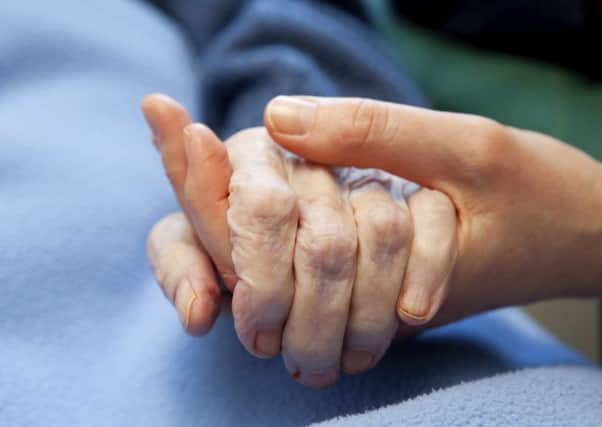Column: Dementia Week is a time for action


The goal is to encourage people to take action to improve the lives of those affected by dementia, working to create a dementia-friendly UK where those with dementia do not feel excluded.
There are 850,000 people in the UK who are affected by dementia and it does not just affect the elderly – 40,000 people in the UK under the age of 65 suffer from early onset dementia.
Advertisement
Hide AdAdvertisement
Hide AdIt is believed that by 2051 the number of people who have dementia in the UK will have risen to two million.
Organised by the Alzheimer’s Society, the special week got a name change this year to recognise the fact that, while raising awareness of issues surrounding dementia is important, more action needs to be taken to create the change in communities people with dementia want and need.
During the week, everyone will be asked to take action to help make everyday life better for those with dementia. A range of fundraising events – from sports events to bake-offs and quizzes – will also be taking place across the UK.
The word dementia describes a set of symptoms that may include memory loss and difficulties with thinking, problem-solving or language. These changes are often small to start with but, for someone with dementia, become severe enough to affect daily life.
Advertisement
Hide AdAdvertisement
Hide AdA person with dementia may also experience changes in their mood or behaviour.
Dementia is caused when the brain is damaged by diseases, such as Alzheimer’s – the most common cause – or a series of strokes.
The specific symptoms someone experiences will depend on the parts of the brain damaged and the disease that is causing the dementia.
Memory loss is often one of the first signs of dementia, especially Alzheimer’s disease.
Advertisement
Hide AdAdvertisement
Hide AdInitially, memory lapses may be mistaken for the normal forgetfulness that often increases as people grow older, or when they become stressed.
However, in someone with dementia it will gradually becomes clear the memory problems are becoming more severe and persistent.
This will often be more apparent to family and friends than to the person themselves.
All types of dementia are progressive. This means the structure and chemistry of the brain becomes increasingly damaged over time.
Advertisement
Hide AdAdvertisement
Hide AdHow quickly dementia progresses depends on the individual. Each person is unique and experiences dementia in their own way.
The way people experience dementia depends on many factors, including physical make-up, emotional resilience and the support available.
Viewing dementia as a series of stages can be a useful way to understand the illness but it is important to realise this only provides a guide to the progress of the condition.
If you or someone close to you is experiencing changes such as significant memory loss, confusion or language difficulties, it’s a good idea to visit your GP for an assessment.
Visit www.alzheimers.org.uk for further information about what is going on in your area and how to get more involved.